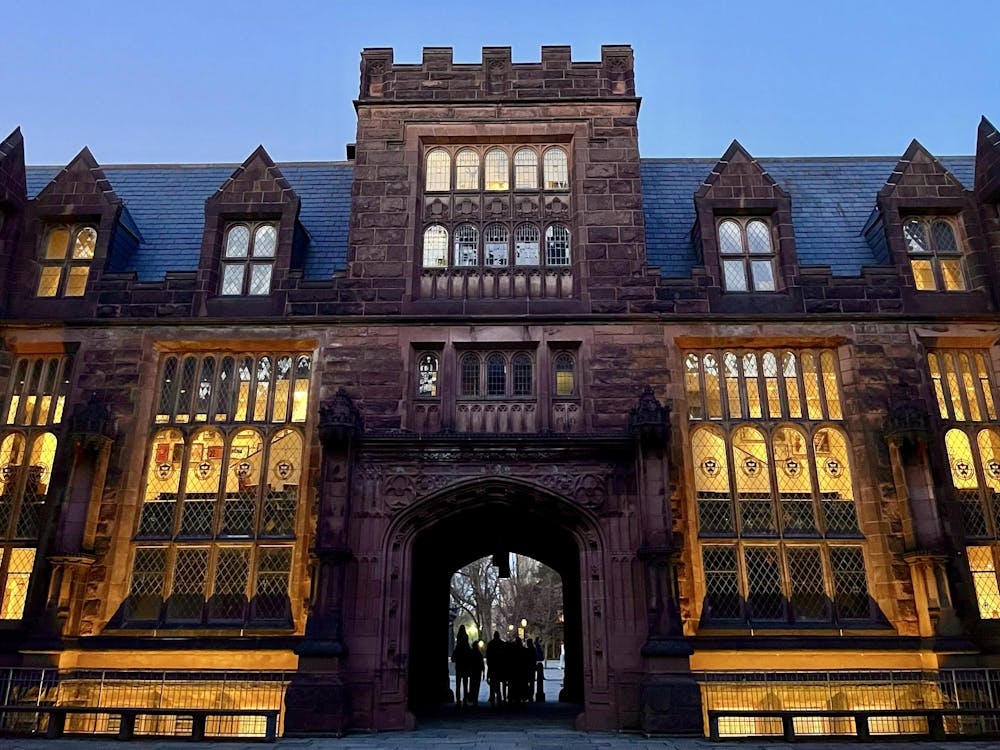Amid a national decline in study of the humanities, prestigious universities are cutting their entire classics departments. As a discipline, classics may seem to fly under the radar — classics majors comprised less than one percent of Princeton’s graduating Class of 2024. But over the last few years, classics has been the subject of charged conversations tying closely back to Princeton. This has sparked fundamental questions about what to do when books known as great and inspirational are called out for inspiring dangerous political movements.
Today’s scholars are conflicted about how to teach the books that are simultaneously elevated as pillars of intellectual thought and reviled as associated with white supremacy, enslavement, and oppression. Classicists on our campus are helping to shape this debate and the stakes are nothing less than how we understand issues of race, gender, democracy, and tyranny. It’s urgent that Princeton students collectively think more critically about the books we call great, both how we read them and how they have been subverted, to understand how this ongoing discourse grapples with power and privilege in the past and present.
Both within and outside the classics community, questions are being raised about whose voices must come to shape classics scholarship, how ancient texts should be taught to the modern reader, and even whether the study of classics should continue to exist. Dan-el Padilla Peralta, a professor of classics at Princeton, is a leader in key critical conversations about classics’ relationship with whiteness. Professor Padilla understands classics as “inseparable” from white supremacy and believes that to dismantle these structures of power, we need reforms that will “explode the canon.”
In order to evaluate the ideal classics pedagogy, we must grapple with how its iconography has been embraced and distorted by radical, violent actors. A dive into America’s modern political landscape reveals an ugly weaponization of the classics. Richard Spencer, an outspoken neo-Nazi and white supremacist, models his ideal “white ethno-state” as “a renewed Roman Empire.” Insurrectionists arrived at the White House in 2021 wearing Greek helmets. Anti-gun control advocates rally around the slogan “Molon Labe,” a Greek phrase attributed with King Leonidas of Sparta, translated as “Come and Take Them.”
But the potential for subversion of classics doesn’t mean we should scrap it as a discipline. Scholars like Mary Beard and Denis Feeney contend that total dismantling of classics would be problematic — Beard told the New York Times that “to ‘condemn’ classical culture would be as simplistic as to offer it unconditional admiration.” Feeney highlighted historical engagement with the classics as a bedrock for progress and resistance of systems that oppress marginalized groups. He cited African-American communities who found inspiration and resources for empowerment in ancient texts, as well as Simone de Beauvoir’s centering of figures like Euripides’ Medea in exploration of feminist theory.
Princeton has been involved in active discourse about access and inclusion in classics education, for students and faculty alike. In 2020, Padilla co-wrote an open letter to the University, signed by over 300 members of faculty, calling on Princeton to become, “for the first time in its history, an anti-racist institution.” Among many proposed reforms, the letter mentions Princeton Humanities’ position to influence and guide conversations about “race, anti-racism, and inclusion on campus and in public media.”
In 2021, the classics department eliminated the Greek/Latin language requirement with the goal of welcoming “new perspectives” to the field — a decision triggering the dismay of many critics, alumni, and otherwise. Regardless of where we stand on the language requirement, this decision indicates that Princeton is actively responding to the national discourse about the role of classics in contemporary politics.
Princeton is influential to a conversation about a discipline that is both so seminal and so susceptible to subversion that it has become an inspiration for opposite ends of the political spectrum: both de Beauvoir and neo-Nazis. Classics rhetoric can be moving and enchanting as well as grossly manipulative and oppressive. Its ideas amplify and empower oppressed groups; they also embolden neo-Nazis and white supremacists.

Whether or not we believe that this literature has a place in the curriculum, however we believe the classics should be taught, we have to understand that a conversation about classics is a conversation about us. If classic literature itself is an epic narrative of power, then talking about classic literature — understanding how this material has inspired both abhorrent and progressive cultural movements — directly concerns the empowerment of students.
We have not yet reached a definitive conclusion about what exactly the future of classics education is, at Princeton and in academia more broadly. What matters more at this stage, especially for students, is that we are involved in the conversation about what we read and how we read it.
We are all impacted by the instruction and, at times, weaponization of the classics, regardless of whether we like to read or even whether we have ever set foot in East Pyne. Literature is and always has been inextricably entwined with politics, meaning active awareness of how books are taught and understood is a concern of any student who is impacted by the society, the systems of power and justice in which they live — and that’s all of us.
We must understand that classics’ “crisis of identity” is also an American and intellectual crisis of identity. It’s part of a national reckoning with how we treat our history and how we read and interrogate our most influential literature, which is instrumental to the systems of authority we construct in the present.

As members of one of America’s leading intellectual communities, facing a terrifying and uncertain reconstruction of power — of the relationship between government and citizen, government and student — to take ourselves out of the conversation about classics is to bury our heads in the sand.
Lily Halbert-Alexander is an assistant Opinion editor and prospective English major from San Francisco. She can be reached by email at lh1157[at]princeton.edu.








